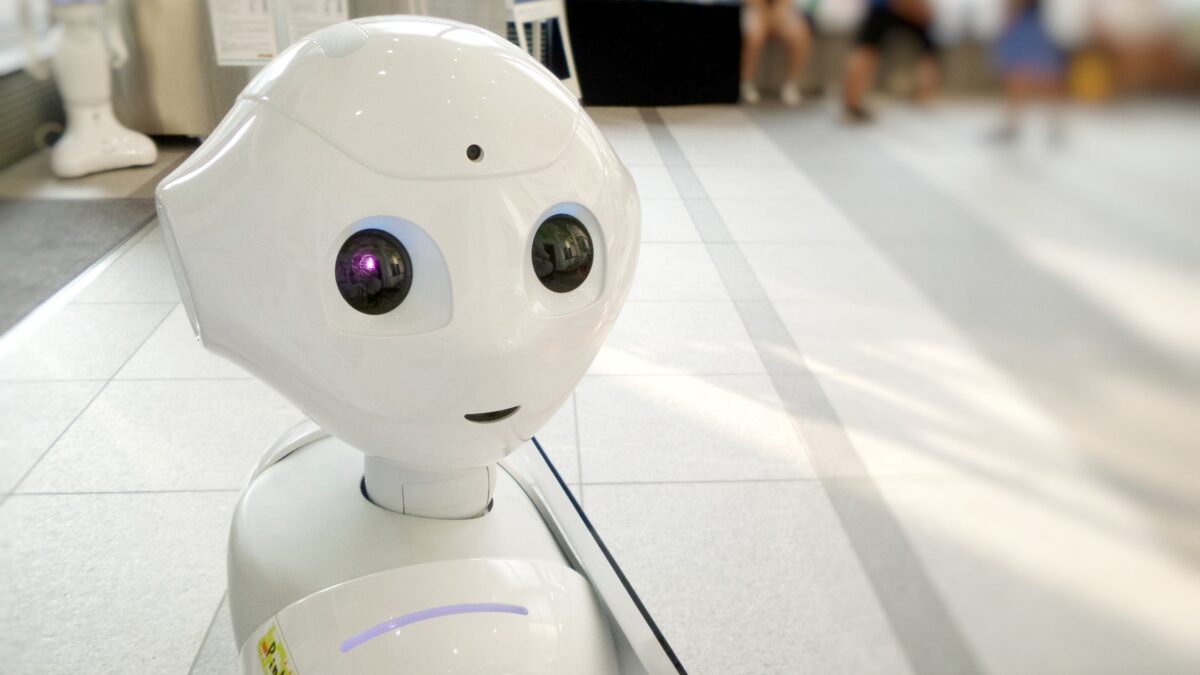A team of Edinburgh-based postgraduate students is the only non-US participant to have been selected to compete in a global Amazon artificial intelligence (AI) competition.
The eight-strong group from the National Robotarium, supported by Heriot-Watt University and the University of Edinburgh, will create a ‘robot butler’ to help people around the home.
Amazon’s Alexa Prize SimBot Challenge asks teams to create an embodied agent which can understand natural language, interact with humans and accomplish tasks and missions.
The National Robotarium team will receive a grant of $250,000 to support its development costs.
The research centre for robotics and AI is part of the Data-Driven Innovation initiative and is supported by £21 million from the UK Government and £1.4 million from the Scottish Government through the £1.3 billion Edinburgh and South East Scotland City Region Deal – a 15-year investment programme jointly funded by both governments and regional partners.
Stewart Miller, chief executive of the National Robotarium said: “To be the only team from any country in the world outside the USA to be selected for the Alexa PrizeSimBot Challenge demonstrates the global significance and capabilities of the teams within the National Robotarium.
“Backed by the combined robotic and AI experience of Heriot-Watt and the University of Edinburgh, we’re demonstrating our ability to lead global development in AI, pushing the boundaries of what’s possible in a domestic setting.”
Economy secretary Kate Forbes said: “Technology has the potential to change lives for the better, and harnessing advances to aid people around the home in response to human speech has potentially far-reaching benefits.
“I am pleased the Scottish Government is providing £1.4 million to support the National Robotarium as we move towards a sustainable and innovative economic recovery and I wish their team the very best of luck in this high profile competition.”
Ian Stewart, UK Government minister for Scotland, said: “The National Robotarium’s participation in this global competition is testament to the cutting-edge research happening in Scotland. It’s exciting to think their designs could be helping people in their homes in the not too distant future.
“The UK Government is investing £5 billion a year in research and innovation and a further £1.7 billion in regional projects across Scotland to level up communities and build back better from the pandemic.”
Verena Rieser, professor of Conversational AI at the National Robotarium, is advising the student team.
She said: “The objective of Amazon’s latest Alexa Prize challenge perfectly aligns with the aims of the National Robotarium which is to use robotics and artificial intelligence research to help people, solve global challenges and work in partnership with industry.
“With AI technology and machine learning offering exciting opportunities to complement our daily lives, exploring how these innovations can be further embedded in our homes is a fantastic learning opportunity for our students.
“This competition has been carefully designed to advance the science behind embodied AI and demonstrates that our team is among the best in the world. They will also benefit from working closely with a global giant in AI development throughout the competition.”
Alessandro Suglia, a tenure-track postdoctoral research fellow in Robotics and Autonomous Systems at the National Robotarium, said: “We are enormously proud to be selected to take part in this prestigious competition.
“Our team will create a next-generation assistant capable of learning continuously. We will focus on natural language generation and reasoning, machine perception, navigation, manipulation and dialogue creation to further push the boundaries of AI through our research.”
The SimBot Challenge has two phases including a public benchmark which requires teams to design a machine-learning model with language-guided visual navigation and task completion.
This is followed by a live interaction phase during which teams will test their bots to respond to customer commands and multimodal sensor inputs from within a virtual world. The National Robotarium team, named EMMA (Embodied Multimodal AI) will compete in both phases. The public benchmark challenge phase is also open to individuals from academia and industry.
Along with the research grant, team EMMA will benefit from Alexa-enabled devices, free Amazon Web Services (AWS) cloud computing services to support their research and development efforts, as well as other resources, and Alexa team support. The winning team will receive a $500,000 prize.




